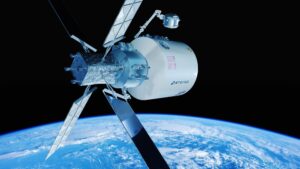Photo by Bill Oxford on Unsplash
It’s said that almost 50% of manual labor done today can be replaced by some form of automation, with the advancements of technology available today. This means that in less than 10 years, we could be looking at plenty of citizens from all walks of life hunting for available jobs.
This global movement is known as “industry 4.0”, or in other words the fourth industrial revolution. Steam-powered automation brought in the first industrial revolution. With the introduction of electricity, we saw the second industrial revolution, and the invention of computers ushered in the third. Currently, we are seeing the fourth industrial revolution take place. Technologies such as manufacturing robots, AI, the Internet of things, and even virtual reality are evolving our current ways of life. Automation can handle almost anything these days, to the point where our skill and effort as humans may not even prove necessary anymore.
But what impact will it have on climate change? As you may have guessed, the answer isn’t that simple. New research and discoveries have led to possibilities of greatly reduced emissions of greenhouse gasses, as well as game-changing data to fight the phenomenon. However, automation has the capability of pushing the Earth’s limits of emissions as well as global consumption if not dealt with carefully.
In order to get a perspective on how mass automation can affect our environment, let’s examine the sectors of the automotive and the agricultural industries. These sectors are highly automated, with barely any intervention needed by human work.
Back in the 1900s, cars were no more than a luxury item, something that only common folk could dream of. When Henry Ford ushered in the assembly line, however, cars became a lot more available – and affordable – leading to his company leading the local automobile market.
Before the assembly line, cars were handmade by teams of experts, which made them works of art. This process, however, only allowed the team to work on one car at a time. Ford’s assembly line allowed for multiple cars to be built at the same, through the use of multiple stations that worked on a particular part of the automobile.
These days, the use of robotic arms means that cars are almost completely automated. Industry 4.0 brought in additional technological advancements that made energy consumption more efficient. Aside from this, data is collected more efficiently, which makes supply chain management even better. The result is a drastic reduction in both emissions and waste for cars and other similar products.
The automobile industry isn’t the only sector benefitting from mechanization – the agricultural industries makes great use of machines such as tractors and combine harvesters to reduce manual labor. Unfortunately, as the world’s population rapidly grows, so too does the demand for food, which leads to emissions of greenhouse gasses. It’s high time that more sustainable methods are used while keeping the efficiency needed today.
And this is happening right now. Corporations are now replacing human labor with automated procedures for things such as watering and harvesting. With the technology available today, it’s possible that we’ll soon have fully automated tractors as well. Even vertical farms are being introduced, which makes more efficient use of space. Pair these innovations with other, newer technologies such as efficient farming and renewable energy production, and you’re looking at the next age of the agricultural industry as a whole.
The problem we have now is that while efforts towards efficient production have been substantial, there seems to be no effort in reducing the resulting impacts that the technology has on the environment. Instead, we see this impact growing in recent years. There are experts who even claim that this is due to the “rebound effect”, or the growth in consumption today caused by the advancements in technology.
Take a look at cars, for example. With robots making production more efficient, cars have become more affordable, which has led to more people being able to afford them. This then results in more cars on the streets, and an overall increase in emissions. And even if we were somehow able to replace all cars with zero-emission electric cars, there’s still the emissions related to electrical supply that we’d need to account for.
In the same manner, modern industrial farms are able to produce more food at a more efficient rate. This, however, makes foods with a high impact such as beef more available, resulting in substantial side-effects to the environment.
So in summary, it is true that advancements in technology and modern innovations can usher in a new age of humans not concerning themselves with simple tasks. It can also be a tool to minimize the impact on the environment as a whole. However, this is only a small possibility. In truth, automation can also be our planet’s downfall if not managed correctly.




